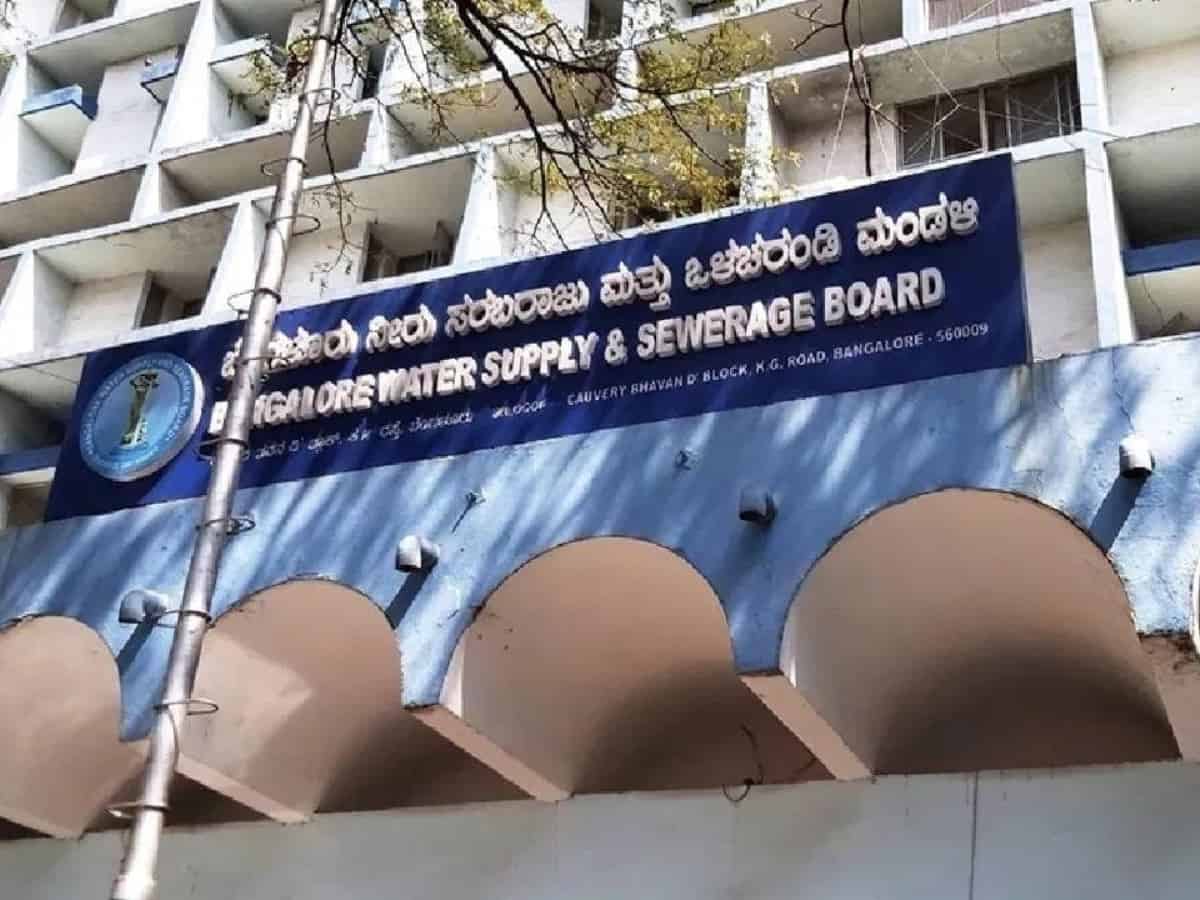Bengaluru: BWSSB launches use of AI, IoT to protect water level in borewells

Bengaluru: In the wake of dwindling groundwater levels exacerbated by insufficient rainfall, Bengaluru, the bustling metropolis of Karnataka, is grappling with a mounting drinking water crisis.
As the scorching summer descends upon the city, the situation has escalated, with wells, borewells, and lakes progressively drying up, sounding alarm bells for the Bangalore Water Supply and Sewerage Board (BWSSB).
With over 14,000 government-operated borewells dotting the city’s landscape, the groundwater levels in approximately 6,900 of these borewells have already plummeted.
Strategic plan
In response to this pressing issue, the BWSSB, entrusted with water management, has devised a strategic plan to safeguard the existing groundwater levels in these borewells.
Embracing innovative solutions, the BWSSB has turned to artificial intelligence (AI) and Internet of Things (IoT) technology to stem the tide of groundwater depletion.
This novel approach entails the deployment of AI and IoT-enabled systems to monitor and regulate water usage, thereby curbing excessive extraction and averting potential damage to pumping equipment.
By leveraging this advanced technology, water management authorities can remotely oversee and manage groundwater preservation efforts, seamlessly orchestrating operations from their office workstations.
In a groundbreaking experimental initiative, an AI and IoT-equipped machine has been installed in a borewell located in Chinnappa Garden, offering a glimpse into the future of groundwater conservation endeavours.
The adoption of these cutting-edge technologies marks a significant stride forward in the BWSSB’s ongoing crusade to conserve water resources. By enforcing stringent regulations prohibiting the diversion of potable water for non-drinking purposes such as car washing, gardening, and construction activities, the board aims to enforce water conservation measures rigorously.
In recent days, numerous households have incurred fines for flouting BWSSB directives, with penalties amounting to approximately Rs 1.10 lakh collected thus far. To streamline the grievance redressal process and encourage citizen participation in water conservation efforts, a dedicated helpline has been established for reporting violations and lodging complaints.
As Bengaluru braces itself for the trials of water scarcity exacerbated by climate change and urbanization, the implementation of AI and IoT-driven solutions offers a glimmer of hope in the quest to safeguard the city’s precious water resources. The efficacy of these technological interventions in mitigating groundwater depletion remains to be seen, underscoring the imperative for continued vigilance and concerted efforts towards sustainable water management practices.
Disciplinary action
Taking a stern stance against the misuse of precious drinking water, the Bengaluru Water Supply and Sewerage Board (BWSSB) has initiated disciplinary action by imposing fines on households found guilty of violating water usage regulations.
A total of Rs 1.1 lakh has been collected as fines from 22 households across Bangalore, signalling the board’s commitment to enforcing water conservation measures.
The penalties were levied under Section 109 of the Bangalore Water Supply and Sewerage Board Act, amounting to Rs 5,000 per household. These fines were imposed on families who persisted in using potable water for non-drinking purposes, such as washing cars or watering plants, despite the ban imposed by the water board. Notably, repeat offenders risk facing escalated penalties of Rs 500 per day for continued violations.
The crackdown on water wastage follows numerous complaints received by the BWSSB, with social media serving as a primary channel for reporting such transgressions. While enforcement measures have been rigorously implemented in Bangalore South, the central, northern, and western sections of the city reportedly witness lax enforcement of the water usage restrictions.
In a bid to streamline complaint redressal and enhance accountability, the BWSSB has established a dedicated call centre (toll-free number 1916) to facilitate reporting of water misuse incidents. Furthermore, recognizing the integral role of replenishing lakes in conserving groundwater levels, the board has commenced the strategic filling of lakes with treated water.
Chairman of the Board, Ramprasat Manohar, conducted an inspection of the sewage treatment plant along the Vrishabhavati river on Sunday, emphasizing the utilization of treated water from this facility to rejuvenate Nayandahalli and Kengeri lakes. Additionally, the J BWSSB has resolved to channel treated water to three lakes, including Dubasipalya, Hoskerehalli, and Halagevaderahalli in Rajarajeshwari Nagar.
However, concerns persist over the lack of initiatives to replenish Varthur and Bellandur lakes, which have suffered significant depletion. In response, the BWSSB has committed to a comprehensive plan to refill 14 lakes that have been adversely impacted by dwindling water levels, underscoring its proactive approach towards sustainable water management in the city.
Get the latest updates in Hyderabad City News, Technology, Entertainment, Sports, Politics and Top Stories on WhatsApp & Telegram by subscribing to our channels. You can also download our app for Android and iOS.
Comments
Post a Comment